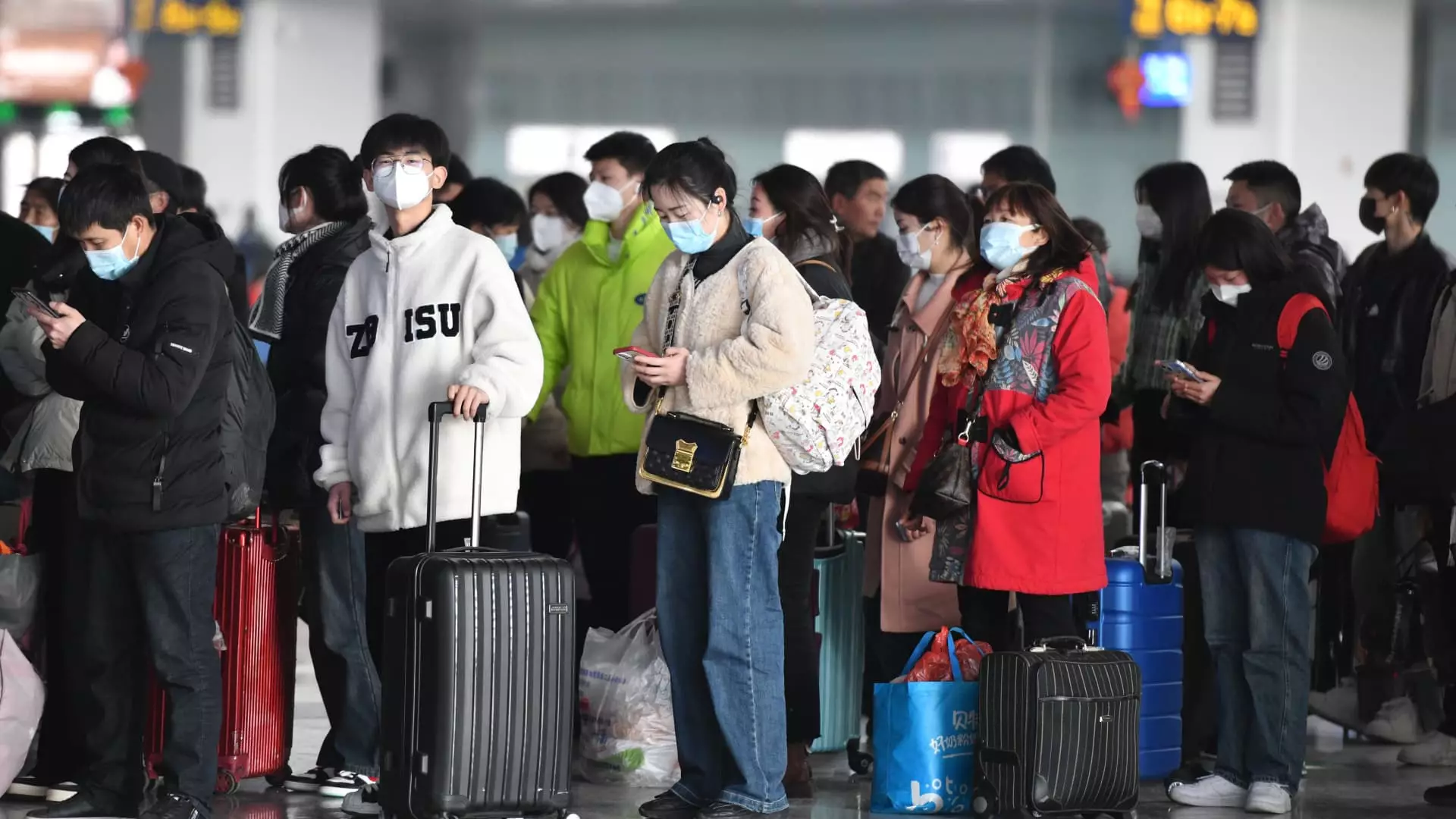Recent trends in the Chinese travel industry have shown a significant shift towards last-minute bookings by travelers. This change in behavior is said to be a result of increasing cautiousness with spending, driven by a lackluster economic recovery in the country. According to Anthony Caputano, president and CEO of Marriott International, there is a „real crisis of consumer confidence“ in China, leading to consumers booking hotels as late as three days in advance.
Consumer Preferences for Spontaneity
Economists at Oxford Economics have observed a change in consumer preferences, noting that modern travelers in China prefer spontaneity in their travel plans. This shift has led to a significant decrease in the booking window, which now stands at three days on average. This shorter booking metric suggests increased uncertainty and caution with spending among Chinese consumers.
The rise in last-minute bookings poses challenges for businesses in the travel industry. It has become increasingly difficult for companies to predict and prepare for demand, especially in the context of China’s slow economic recovery. According to Patrick Body at the Cheung Kong Graduate School of Business, the current situation makes it challenging for businesses to plan effectively and adjust to fluctuating demand.
Impact on Pricing Trends
The changing consumer behavior in China has had a significant impact on pricing trends in the travel industry. Companies like Marriott International and domestic travel booking agency Trip.com have reported pricing pressure and declining average rates for hotels and flights. This trend is reflective of the frugality observed among Chinese consumers across various sectors, from groceries to travel.
Despite the challenges posed by the current economic climate, there are expectations for an increase in travel demand during upcoming holidays like the Golden Week in early October. Economists at Oxford Economics predict that travel demand will surpass 2019 levels, indicating a potential recovery in the industry. However, uncertainties remain, with Trip.com CFO Xiaofan Wang highlighting limited visibility due to short booking windows.
The evolving trends in Chinese travel behavior reflect a broader shift towards caution and frugality among consumers. The rise in last-minute bookings and changing preferences for spontaneity pose challenges for businesses in the industry, requiring them to adapt to the new normal. Despite the current uncertainties, there are signs of potential recovery and increased travel demand in the future, signaling hope for a revival in the Chinese travel industry.


Napsat komentář